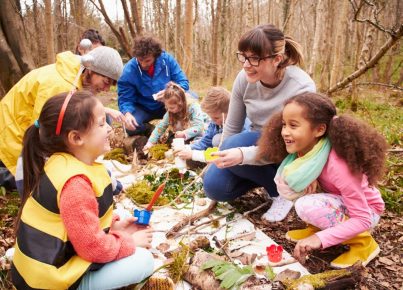Introduction
Outdoor education embodies the core principles of powerful learning experiences: connection, exploration, and growth. As our modern society continues to evolve and technology becomes increasingly dominant in our lives, it is essential to recognize the enduring importance of nature in education. A manifesto for boosting outdoor education is necessary for fostering a generation of well-rounded learners who are capable of critical thinking, problem-solving, and adapting to various environments.
The Power of Nature in Teaching Expertise
Outdoor education provides a wealth of benefits for both students and educators. These opportunities extend across all areas of learning – physical, social, emotional, and cognitive development – and promote a comprehensive approach to education.
1. Holistic Development: By exposing students to diverse learning environments, we encourage the development of versatile skills that contribute to their overall growth.
2. Enhanced Engagement: Outdoor experiences provide an alternative avenue for capturing the attention and curiosity of students who may otherwise struggle with traditional classroom lessons.
3. Physical Fitness: Active engagement in outdoor activities promotes healthy physical development and an appreciation for regular exercise.
4. Environmental Stewardship: Exposing students to nature fosters a deep connection with the environment and cultivates awareness of sustainability issues.
5. Collaboration & Teamwork: Many outdoor activities require effective communication and collaboration among participants, reinforcing essential life skills.
Strategies for Integrating Outdoor Education into Teaching Practice
As educators committed to boosting outdoor education within our institutions, we must prioritize these key strategies:
1. Adapt Curriculum: Modify existing lesson plans or develop new ones that incorporate outdoor activities as an integral part of the learning process. Find creative ways to use nature as a tool for teaching expertise across multiple subjects.
2. Establish Partnerships: Collaborate with local parks, nature centers, or environmental organizations to create meaningful outdoor experiences for both teachers and students.
3. Professional Development: Promote opportunities for educators to attend workshops, seminars, or conferences on outdoor education to enhance their teaching expertise.
4. Funding & Resources: Advocate for funding to support outdoor education programs and resources, including training, equipment, and facilities.
5. School Culture & Policy: Foster a school culture that values outdoor education and supports policies that enable its implementation.
Conclusion
The manifesto to boost outdoor education serves as a call to action for all educators, administrators, and policymakers. By integrating nature into our teaching practice, we can nurture resilient and adaptable learners who understand the interconnectedness of the world around them. Embracing outdoor education as a cornerstone of comprehensive learning is not only an investment in our students but also in the future of our planet.





